Are you looking for accredited online colleges? Here you can compare schools, types of colleges, and online learning platforms to see which type of online program will work best for you.

The best online schools will enable you to take charge of your life and get the education that you need to succeed.
Editorial Listing ShortCode:
You don’t have to be on campus to learn new things and build new skills. In the 21st century, you can learn through online schools.
Why Go to College Online?

According to research, around one-third of college students are taking classes online. Online education is consistently becoming a more popular way of learning, and that trend is expected to grow as colleges continue to expand their online degree programs for distance learners.
Why do students like online colleges and universities? What benefits can they offer you as you pursue an online bachelor’s degree or even graduate programs?
Flexible Schedules
This is one of the most common reasons students take online classes. Between work, family, and social obligations, it can be challenging to arrange your schedule around traditional classes. Online classes are often more flexible.
In fact, there are several ways your online coursework can be structured.
- Asynchronous: These are self-paced classes where you can access the materials at any time and complete the assignments on your own schedule.
- Synchronous: These classes are done in real-time, but you can participate from any location as long as you have an internet connection. You can take them while on the go or even lying in bed.
- Open schedule: These are entirely independent classes. As long as you meet the deadlines, you control the speed of your learning.
You typically can’t get this kind of flexibility from on-campus programs.
Different Methods of Learning

In a classroom, students usually listen to lectures and take notes. For distance learners, depending on the teachers’ teaching styles, they might listen to lectures, watch videos, download podcasts, participate in chatrooms, post on discussion boards, and engage with others on social media.
If you’re the type of person who feels stifled in a lecture hall, online classes can offer fresh, exciting ways to learn. They can incorporate different techniques that speak to different learning styles for online learners.
Whether you’re an audio, visual, or kinesthetic learner, online classes can offer a blend that often isn’t seen in typical classrooms.
The possibilities for many online programs are numerous, so whether you’re pursuing an online computer engineering program or an online theology degree, there are programs to fit your learning styles and needs.
Faster Degrees

Without the barrier of having to be physically present for certain classes at certain times, it can be easier for distance learners to fast-track their degree.
Some colleges make it even easier by offering accelerated programs that will put you through the program faster. You might earn more credits per semester, or you might qualify for special classes that are only offered through online bachelor’s degree or graduate programs.
In many cases, you can also transfer credits that you’ve already completed at other colleges and apply them towards your new degree.
Lower Costs

Earning online degrees is usually cheaper than getting one the old-fashioned way. For starters, you aren’t paying to live on campus, so you’re free from dorm costs and cafeteria costs.
Online learners also avoid student fees that cover things like parking, computer use, lab use, and on-campus healthcare.
Tuition is often reduced as well for online degrees. Some colleges even waive their residency rules for online students. At these colleges offering online degrees, whether you’re in-state or out-of-state, you’ll pay the same tuition rate for online classes.
Not every online program is cheaper, though.
Some online programs only qualify for a limited amount of financial aid. You should definitely read the fine print before you commit to online degrees.
How Do Accredited Online Colleges Work?

Every school is different, but the basics of their online degree programs are usually the same.
The central hub is a learning management system (LMS). This is your headquarters as an online student. It’s where you’ll sign in, get your assignments, access your course materials, complete your online coursework, review your grades, and contact your professors.
As for the learning itself, many online programs can take several different forms. You might live-stream your lectures or read textbooks online. You might watch videos, join teleconferences, or participate in student chatrooms in online bachelor’s degree programs.
Lab work is a bit trickier. Sometimes, you can do what you need to do through simulations or recorded experiments at home.

Other times, the school will want you to complete the lab work at an approved facility near you, so there’ll still be an in-person component to your education.
A lot of your digital learning experience at online colleges and universities will depend on what kinds of classes you’re taking.
For example, with many online programs, if you’re in synchronous, fixed-time courses, you’ll need to follow a specific schedule. Your attendance will be recorded, and your progress will be monitored.
With asynchronous classes, on the other hand, the supervision during your online coursework will be minimal. You’ll be allowed to complete your assignments at your own pace. There’s usually a digital library where you can access the course materials at any time.
If you have any questions about how a college handles its online degree programs, you can reach out and ask.
The average online school gets hundreds of inquiries per year, which means you likely won’t be alone in wondering how things are done at online colleges and universities.
How to Choose the Best Online Colleges: Step 1 – Choose Your Degree

Before you start diving into the world of online learning, you should think about which degree you want. There’s no point in researching 2 year colleges offering online degrees if you’re interested in obtaining a 4 year degree.
The sooner you start narrowing down your options, the faster you’ll be on your way to earning your degree and joining the workforce as a qualified professional.
Here are the credentials that can be earned online:
Certificates

Professional certifications are usually acquired through short-term, skill-based programs.
They won’t replace a degree, but they’ll give you a title to put on your resume and help you obtain valuable knowledge and experience for your future career.
If you’re studying human resources, for example, you might become a Human Resources Business Professional (HRBP) or a Professional in Human Resources (PHR). If you’re interested in public relations, you can take a course that prepares you for the Accreditation in Public Relations (APR) exam.
Requirements for these certifications vary. Some will only ask you to pay a fee and sit for an exam, so no university enrollment will be necessary. Others require months of study from a real, certified university program, so you’ll have to register for them.
Associate Degree

An associate degrees usually take 2 years to complete. Depending on your industry, it might be all that you need to get a job, or it might just be a stepping stone for further educational advancement.
For example, if you’re interested in addiction counseling, an associate degree is usually enough to get a job in rehabs, prisons, hospitals, and social offices. If you’re studying finance, though, an associate degree will likely only qualify you for entry-level employment.
High-paying careers are typically reserved for advanced degree holders.
One thing to note is that an associate’s degree can often be applied toward a bachelor’s degree. In other words, if you get an associate’s degree and decide to go back to school for a bachelor’s degree, you don’t have to start all over.
You can apply qualifying credits that you’ve already earned towards your new area of interest.
Bachelor’s Degree

It usually takes four years to earn a bachelor’s degree. There are ways to speed up the process, especially if you’re taking online classes, but four years is the average.
The average starting salary for a bachelor’s degree holder is $53,889 per year. However, this is the average across all occupations. Your actual starting salary will depend on your industry.
Here are some of the average salaries for bachelor’s degree holders in different industries:
- Computer science – $72,173
- Engineering – $71,088
- Social science – $59,919
- Humanities – $59,500
- Business – $58,869
These are just starting salaries. Experienced professionals can expect their salaries to climb over the years. For example, the top earners in computer science take home more than $100,000 per year (Bureau of Labor Statistics).
Master’s Degree

A master’s degree can take anywhere from 1 to 3 years to complete. It’s also possible to enroll in a dual degree program where you can earn your bachelor’s and master’s degrees at the same time. These programs can usually put you on track to earn both degrees in as little as 5 years.
Financially speaking, it’s worth the effort to get a master’s degree for many degree seekers.
The average starting salary for those with a master’s degree is $20,000 per year more than the average salary for people who only hold a bachelor’s degree.
Master’s degrees are usually about specialization, though. If your field doesn’t require it, it can be an investment of time and money that isn’t strictly necessary. You’ll need to weigh these things carefully before you come to any decisions about obtaining a master’s degree.
Doctorate Degree

A doctorate degree is the highest degree that can be earned. A Doctor of Philosophy (PhD) is the most common doctorate degree, but Doctor of Psychology (PsyD), Doctor of Education (EdD), Doctor of Business Administration (DBA), and many others are also available.
Getting a doctorate is definitely a commitment. It typically requires anywhere from 4 to 8 years of schooling, and that’s on top of the 4 to 6 years that it usually takes to get a bachelor’s and a master’s degree.
The silver lining is that you often can make big bucks with a doctorate degree.
On average, doctorate degree holders earn more than any other degree type, and they also have the most extensive range of job opportunities thanks to their advanced education.
Step 2: Choose a Major and Specialization

Picking a major is one of the most critical parts of your college career. While some students prefer to stay undeclared for a while, it’s often best to choose your major early so that you can fully commit yourself to your chosen career and its educational requirements.
Which major is right for you? This is a question that many college students grapple with, and at the end of the day, you’re the only one who knows the answer. However, academic advisors for your program will guide you through your degree requirements.
If you’re hoping to make the smartest decision possible for a successful career, though, there are a few things you can consider:
Job Options
General degrees can help open doors in many different fields. Specialized degrees can help prepare you for specific jobs you can pursue right after graduation.

Salary Potential
Which degrees lead to the highest-paying careers? Which ones have a good return on investment (ROI) for the amount they cost? A cheap degree might have a great ROI, even if the starting salary isn’t that high.
Industry Growth
Some industries are on the decline. They’re losing jobs, so there will be fewer positions and fiercer competition when you graduate.
On the other hand, some industries are very in demand. They’re adding thousands of jobs every year, or they’re experiencing shortages that are prompting employers to qualify new workers in a hurry. These industries have the best opportunities for new grads.
Personal Passion
Do you love the subject? Could you spend the rest of your life working with it? It’s important not to underestimate the value of enthusiasm when it comes to pursuing a college or university degree.

Specialization
Another thing to consider about your college major is whether you want to specialize. This could mean getting a minor or just having a concentration or emphasis within your degree program.
There are pros and cons to specializing.
Pros:
- Can become qualified for niche jobs, including high-paying jobs for those with specialized knowledge
- May be able to apply credits to other degree programs if you go back to school
- Might give you have an edge over other applicants without your specialized knowledge
Cons:
- Might wind up competing with other highly-qualified applicants for the same limited jobs if your field is small
- May have less job security if you specialize in something that becomes obsolete
- Might be labeled “overqualified” if you’re job-hunting beneath your skill level
Specialization isn’t something to take lightly. You’ll need to think about it from every angle before you make any commitments.
Step 3: Determine What Type of Online Program Works Best for You

Online classes can take many different formats, so if you have a learning style that needs to be accommodated, you’ll want to research the different types and see which one is right for you.
Synchronous

Synchronous classes happen in real-time. They take place online, but the teachers and students are logged in together. They interact with each other just like they would be in a real classroom.
There are several ways to hold synchronous classes. The most common is through a live-streamed lecture from the professor with an accompanying chatroom for the students, but other methods include webinars, podcasts, video conferences, and even social media interaction.
The most significant benefit of synchronous classes is the ability to have instant communication between yourself and others.
You can ask questions, get answers, make clarifications, start debates, or request study sessions, and you won’t have to wait hours and hours for people to respond to your emails.
A drawback of synchronous classes is that you’re bound to a set schedule. You have to show up on time to your online classes just like on-campus classes, so you won’t enjoy the flexible, learn-as-you-go format of other online degrees.
Asynchronous

Asynchronous classes are done on your own schedule. The materials are uploaded to a digital library that can be accessed at any time, and you are expected to watch lectures, complete assignments, and take tests within a certain time frame.
It isn’t a free-for-all. You’ll be expected to check in every so often, and your professor will monitor your progress through your homework. You can pass or fail just like a regular class.
If you’re a busy person with a lot of demands on your time, however, asynchronous classes can allow you to fit lessons into the free moments of your schedule. They’re also often ideal if you work at a faster or slower pace than your peers. You can go through the material at your own speed.
The downside of asynchronous classes is that you’ll be somewhat isolated from your peers and professors. There won’t be chats and live discussions, and if you have a question about something, you’ll need to send an email and wait for a reply.
These classes also require self-discipline. You’ll need to stay on track even without engagement, feedback, and supervision. Some degree seekers find this difficult.
Open Schedule

Open schedule classes can give you the most freedom as an online student. They’re a lot like asynchronous classes, and the terms are sometimes used interchangeably, but there can also be critical differences in their formats.
The most significant difference is that asynchronous classes usually follow a schedule. Even if you’re completing assignments at your own pace, there are still check-ins and deadlines, and you can fall behind on the syllabus if you aren’t studying regularly.
With open schedule classes, there might not be any deadlines at all, or the deadlines might be flexible. You’ll still need to complete the assignments and pass the tests, but you can do it at an entirely self-directed pace.
Open schedule classes aren’t for everyone, but they can be a lifesaver for particular kinds of degree seekers. If you need this kind of flexibility, this is an option to explore.
Fixed-Time Online Courses

Fixed-time classes are a type of synchronous class. They follow a set schedule, and you’ll be expected to be in the chatroom or logged into the live stream at a particular hour.
Not all synchronous classes are fixed-time classes, though. Some of them have more lenient rules for distance learners.
For example, you might only be asked to attend a certain number of lectures each week, or you might be allowed to contact other students on your own time instead of participating in live debates.
Fixed-time classes are the stricter option. If you need a guided classroom environment to stay on track and not fall victim to procrastination, they might be an option worth considering.
Hybrid Online Courses

Also known as blended courses, hybrid courses are a mix of online and classroom-based learning.
You might attend lectures on campus but submit all of your assignments online, or you might watch lectures online but gather with your classmates for labs, projects, discussions, and exams.
The good thing about hybrid courses is that they offer the best of both worlds when it comes to learning. You can enjoy real-world feedback and communication with others but also be able to use online materials for self-paced study.
Editorial Listing ShortCode:
The bad thing about hybrid courses is that you might struggle with the format. You might not enjoy the classroom experience, or you might not adapt well to the online platform. Since hybrid classes use both, you’ll be out of luck if you decide that you don’t like one.
Step 4: Select the Type of College to Attend

Once you’ve decided on the class type that suits you, it’s time to figure out which schools offer them. You’ll have several options depending on the degree level that you’re hoping to achieve.
Community Colleges
Community colleges are 2 year schools that offer certifications and associate degrees. They’re known for being smaller and more affordable than 4 year universities, but the flip side is that their degree programs are limited.
The good news is that many community colleges have articulation agreements with other schools in their state. This means that if you complete two years of core classes at a community college, you can enter an approved 4 year university as a junior.

Thanks to the articulation agreement, your credits will transfer, and they’ll count towards your bachelor’s or master’s.
Another nice thing about community colleges is that their tuition rates are lower. The average 2 year institution costs $3,340 per year for in-district students and $8,210 per year for out-of-state students, while the average 4 year institution costs $9,308.
If you’re looking to save money on your degree, a community college could potentially put thousands of dollars back into your pocket.
Professional and Career Colleges

Also known as vocational schools or technical schools, career colleges are designed to teach you a particular set of skills that can help prepare you for the workforce. Rather than studying a broad, general subject, you’ll be on track for a specific career or a particular industry. Career counselors and academic advisors are usually available to help guide you along the way.
You’ve probably heard of automotive schools and cosmetology schools, but you can also find schools devoted to art, fashion, real estate, cooking, nursing, electrical work, and information technology (I.T.).
Different schools will offer different credentials. For example, while some career colleges offer associate degrees, others only give out diplomas and certificates. Make sure that your chosen online school will grant you the credentials you need to get started with your successful career.
Public Colleges

Public colleges are probably what you think about when you think about college. They’re big, 4 year institutions that offer a wide range of subjects and degrees, and everyone is welcome to apply, though not everyone will gain admittance.
The “public” part refers to the fact that they’re funded by state taxes. This is why in-state students are charged less tuition than out-of-state students. They’re feeding money back into the school just by paying their taxes.
Public colleges shouldn’t be confused with state schools. State schools have names like the University of Michigan and the University of California, and they are public, but there are also public colleges without any particular affiliation to their state. Many public colleges offer fully online undergraduate programs as well as graduate degrees.
An example would be Rowan University in New Jersey.
Private, Not-for-Profit Colleges and Universities

Private universities aren’t funded by taxpayers. They run on donations, investments, endowments, and tuition payments from students. This freedom allows them to be more selective with things like admission and curriculum.
Ivy League colleges are private colleges. If you have your eye on Harvard or Stanford, you’re looking at a private college.
Religious colleges are also private colleges. Places like Liberty University, Brigham Young University, and the University of Notre Dame are all private colleges. Just like with public colleges, private colleges often offer fully online undergraduate programs and even online master’s and doctorate programs.
Step 5: Check the Accreditation of Online Colleges You Apply To

You may have heard that it is important for your online school to be accredited, but why is it important?
Accreditation is basically a review process for colleges. It’s conducted by objective, third-party organizations, and it verifies that the school meets specific educational standards. One way to avoid diploma mills is to look for an accredited online college.
Getting accredited is voluntary, so some schools don’t do it. Since it’s a requirement to receive federal financial aid, though, most schools want it.
There are three types of accreditation: national, regional, and programmatic.
National Accreditation

While regional accreditation can be sought by all public and private schools within a region, national accreditation is mostly applied to technical and vocational schools, as well as “non-traditional” schools for religion or distance learning.
For example, there are several faith-based national accrediting boards offered by the Association for Biblical Higher Education (ABHE) and the Association of Theological Schools (ATS).
There’s also the Distance Education Accrediting Commission (DEAC) for online universities.
If you need help determining if your technical school has been nationally accredited, you can check its website or search on the Council for Higher Education Accreditation (CHEA) website.
Regional Accreditation

Regional accreditation is the most common kind of higher education accreditation. It extends to both public and private universities, and as its name suggests, it divides the U.S. into regions. These are the big six accreditation organizations:
- Higher Learning Commission
- Northwest Commission on Colleges and Universities
- Middle States Commission on Higher Education
- New England Association of Schools and Colleges
- Western Association of Schools and Colleges
- Southern Association of Colleges and Schools
As you can see, regional accreditation comes from a different organization in Florida than in Nebraska, but all six of these accrediting boards have equal weight and status in the eyes of the educational industry.
Programmatic Accreditation

Programmatic accreditation is for specific fields and industries. It isn’t as widespread as regional or national accreditation, so don’t panic if your degree program doesn’t have it, but it can help you find high-value programs if you’re still looking.
One of the most well-known programmatic accrediting boards is the American Bar Association. It offers accreditation to law schools and legal degree programs.
Another well-known organization is the American Library Association that accredits library science programs.
There are some more obscure college and university accreditation organizations as well. While these are not as well known as others, they’re all equally recognized as accrediting boards, so they’re all legitimate.
Step 6: Apply for Financial Aid for a College Degree Online

Financial aid might seem intimidating from the outside, but once you break it down, it’s actually quite simple and can help defray your online degree cost.
The first step is to apply for the Free Application for Federal Student Aid (FAFSA). It won’t cost you anything to submit the paperwork, and depending on your family’s circumstances, you could qualify for several types of aid:
Grants
Grants are essentially free money that you don’t have to pay back. Most of them are need-based, so you’ll only qualify if you’re under a certain income bracket.
Loans
Loans come in two types: subsidized and unsubsidized. You’ll need to repay them, but with subsidized loans, the government will take care of the interest while you’re in school. You can also apply for private loans.
Work-study Programs
Work-study programs will arrange a part-time job for you while you’re in school. It’s usually on campus in a service position, but there are other jobs available as well.
If federal aid isn’t enough to cover all of your costs, there are a few other financial aid options that you can look into:
Scholarships
Scholarships are another source of free money for college. Most are need- or merit-based, but you can find scholarships for many other things, including gender, nationality, degree type, family status, and field of study.
Tuition Reimbursement
Tuition reimbursement is offered by some employers. It’s especially common in skill-based jobs where the company benefits from well-trained, well-educated workers, but it can also be found in companies like Starbucks. You’ll need to pay for your own tuition, but they’ll reimburse the costs later.
Institutional Aid
Institutional aid is financial aid that comes directly from the school. It’s usually funded by alumni or special programs, and it can come in the form of grants, scholarships, work-study opportunities, and more.
Cost doesn’t have to be a deal-breaker when it comes to getting your degree. It might not be easy to pay for school, but with the right financial aid to help lower your online degree cost, it doesn’t have to be impossible.
Step 7: Apply to the Online Colleges You Want to Attend

The college application process might seem intimidating if you aren’t familiar with it, but once you break things down, it’s a lot easier to manage.
Make a List of Deadlines
Your first step should be figuring out all of the deadlines that you’ll face as a prospective college student. Even if your school has rolling admissions that are more flexible than usual, there’s still usually a cutoff for when students can’t apply anymore.
You should also make a list of deadlines for things like priority applications, online program applications, submitting the FAFSA, and taking or retaking the SATs, ACTs, or other required tests, especially for programs leading to bachelor’s degrees.

Additionally, you should note whether the school operates on a semester or quarter system.
With a semester system, there are two periods of learning in the spring and fall. With a quarter system, the learning periods take place year-round through spring, summer, fall, and winter. These differing schedules can impact your deadlines in a big way.
Think About Applying Early
When applying for colleges, there are two ways to beat other students to the punch:
- Early decision is when you apply to a school in November and receive an answer by December. It’s a binding choice, meaning that you can’t apply to other schools if and when you’re accepted, and you’re only allowed to apply to one school as an early decision student.
- Early action is when you apply in November and receive an answer sometime between December and February. It’s non-binding, so you’re free to apply to other schools even after you’re accepted, and you don’t have to make any final decisions until May.
There are pros and cons to applying early for colleges, so it might or might not be a good decision for you. It’s something to discuss with your parents, teachers, and guidance counselors. Early decision options are mainly applicable when applying for bachelor’s degrees.
Choose a College Application Platform

You can apply for colleges individually, but it’ll involve a lot of drudge work, and you’ll waste valuable time that could be spent on things like writing essays and gathering recommendation letters.
Often the better option is to use a college application platform. You can create a centralized application as a sort of template for all of your chosen schools, and you can utilize the platform’s resources to edit and enhance it to perfection.
Here are the most prominent college application platforms:
- Common Application
- Coalition Application
- Universal College Application
There are also state-shared platforms like New York’s SUNY system. Since there are many SUNY schools, their platform will let you apply for multiple schools.
Gather Your Documents

While every school is different, there are a few things that are usually needed for college applications:
- High school transcripts
- Standardized test scores
- Personal essays
- Letters of recommendation
You might need these documents when applying for financial aid or other student resources as well, so it is helpful to keep them close.
Evaluate Their Online Programs

Last but certainly not least, it is important to consider the strength of a school’s online program before you invest time and money in it.
Are the classes synchronous or asynchronous? Do they have an entire e-campus, or do they just offer a few courses online? What does their learning management system look like? How do they handle labs and other hands-on work in a virtual degree program?
A school can have great campus classes but terrible online classes. On the flip side, a school might have an amazing online program even if their campus isn’t that impressive. You won’t know until you research.
Are Online College Degrees Legitimate?

Online degrees are legitimate. There are fakes and scams out there, so you’ll need to recognize the signs, but it’s entirely possible to earn an online degree that has the same power and prestige as a campus-based one.
Here are some things to look for in an online degree:
- Accreditation. Has the school been vetted by any regional, national, or programmatic accrediting boards?
- Value. Are the online classes taught by the same teachers as the campus classes? Do they use the same textbooks? Do they require the same labs?
- Resources. Do they have an e-campus? Do they utilize a learning management system or have other well-developed ways of supporting online degree seekers?
If you have any questions about the legitimacy of a school’s online program, you can send them an email or contact them through their website. If they’re real, they should have no problem offering details on their credentials and requirements for online degrees.
What Is the Easiest Degree to Get Online?

The difficulty of an online degree program can depend on a lot of things, including your dedication as a student, but there are a few factors that can make certain subjects harder than others:
Lab Work and Fieldwork
It’s possible to satisfy these requirements through an online degree program, but you’ll need to make special arrangements. A major like biology is going to require more arrangements than a major like history or literature.
Program Length
Many 2 year degrees are easier to obtain than 4 and 5 year degrees, such as bachelor’s degrees. Additionally, some online degrees might be candidates for things like accelerated schedules, while others are not.
Area of Study
Subjects like computer science are notoriously tricky, and they can be even more difficult with online degrees, where you don’t have access to campus libraries and other resources.
Specialization
If you choose to concentrate your studies on something specific, that usually requires more academic involvement than a general, non-specialized degree.
These and other factors important to you are good to consider before committing to online degrees.
Which Schools Are Affordable Online Colleges?

Tuition is the most significant factor in a school’s affordability. How much do they charge per credit? What’s the difference between in-state and out-of-state tuition? Is there a special rate for online students?
Some schools will charge the same rate for online students regardless of residency.
Another factor is financial aid. Some schools offer more funds than others, especially when it comes to online programs. You’ll need to double-check that your grants, loans, and scholarships apply to online classes.
What’s the Best Online University?

Everyone has their own opinions about the “best” colleges to attend. At the end of the day, the decision is up to you, so make sure that you’re doing your homework about college selection:
- Is the school accredited?
- Does it offer a robust selection of majors, minors, classes, certificates, and degree options?
- Does it have plenty of resources for online students?
If you need help getting started, you might consider the list of schools provided at the end of this article.
What Are the Best Online Colleges for Military Personnel?

Online classes are an excellent option for both former and active military personnel. They offer a lot more flexibility than traditional, campus-based courses and can even be useful for your military career by helping you build skills and boost your resume.
There are a few things that you’ll probably want to think about before enrolling in an online college as a military individual. The first is accreditation.
Your school needs to be accredited if you want to qualify for federal financial aid like the GI Bill.
Another thing to consider is getting college credit for your military experience. It can shorten the time that you’re in school, so it’s a worthwhile endeavor, but only some colleges will offer the option.
You can contact the U.S. Department of Veterans Affairs to ask them about approved universities.
List of 50 Online Colleges
Methodology: The following school list is in alphabetical order. To be included, a college or university must be regionally accredited and offer degree programs online or in a hybrid format.

Arizona State University, a top-ranked research university by U.S. News & World Report in the Phoenix metropolitan area, is one of the nation’s largest universities in terms of enrollment.
The university, through its online programs, is dedicated to providing high-quality and flexible education to students across the country and around the world. They offer over 300 online degree and certificate programs that suit the needs of busy working adults.
Arizona State University is accredited by the Higher Learning Committee of the North Central Association of Schools and Colleges.

Boston University has been offering online programs since 2002. Their outstanding academic programs are aimed at helping students meet their diverse educational needs and exceed expectations.
Each program is designed in collaboration with the Boston University Distance Education office, which consists of a team of experts in instructional design, support staff, and media producers.
Along with excellent faculty, they make sure that online students undergo the same high-quality and rigorous training as on-campus students.
Boston University is accredited by the New England Commission of Higher Education.

California Baptist University is a Christian liberal arts university located in Riverside, California. CBU offers online degree courses at the undergraduate, graduate, and doctoral levels.
There are over 40 programs to choose from. These programs are flexible and conveniently allow students to maintain a good balance between their studies and a successful career.
California Baptist University is accredited by the Western Association of Schools and Colleges Senior College and University Commission.
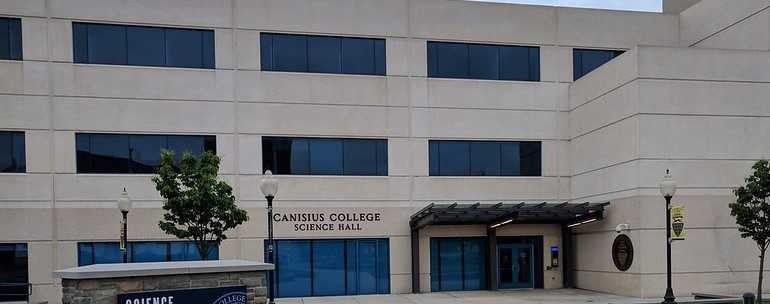
Canisius College is a Jesuit college located in Buffalo, New York. Their online learning format allows students to advance in their careers at their own pace but with the same rigor as traditional classes.
Canisius College offers over 13 high-standard online programs that are anchored in Jesuit values and focused on real-world experiences.
Canisius College is accredited by the Middle States Association Commission on Higher Education.

Case Western Reserve University, a research university in Cleveland, Ohio, offers fully online and hybrid courses, which are flexible and high-quality.
They offer several classes and programs in the areas of engineering, law, applied sciences, nursing, medicine, management, and entrepreneurship. These programs are offered at the undergraduate and graduate degree levels.
Case Western Reserve University is accredited by the Higher Learning Commission.

Central Michigan University Online Campus offers convenient and high-quality programs that suit everyone’s needs.
Courses from a wide variety of programs are offered entirely online in 6, 8, and 12 week formats. Their excellent support services ensure that students are never alone in their academic journey. Programs are provided for bachelor’s, master’s, specialist, and doctoral degrees.
CMU is accredited by the Higher Learning Commission.

City University of Seattle in Washington was established in 1973 with a mission to provide quality education to working adults. The university offers online education to the US and various countries around the world.
There are around 45 programs available online at the associate, bachelor’s, and master’s degree levels.
City University of Seattle is accredited by the Northwest Commission on Colleges and Universities.

Colorado State University is a research university in Collins, Colorado. The university consists of 8 colleges and 55 departments. CSU offers online bachelor’s, master’s, and doctoral degree programs that allow students to pursue degrees wherever they are.
Tuition fees are the same for everyone, regardless of where they live.
Colorado State is accredited by the Higher Learning Commission.

Columbia University aims to provide professional development and college education opportunities for working adults through a wide range of online learning programs.
Online college courses are offered in the areas of social work, health technology, engineering, applied science, environmental sustainability, and leadership. There are also non-degree certificate programs available online for professional development.
Columbia is accredited by the Middle States Commission on Higher Education.

Concordia University – St. Paul is a Christian liberal arts university that was founded in 1893. It offers high-quality online learning education with affordable tuition fees and outstanding faculty support. It has some of the most affordable tuition costs in the state of Minnesota.
Their online programs are career-focused, which means that they are designed to equip students with relevant and marketable job skills.
Concordia University – Saint Paul is accredited by the Higher Learning Commission.

Creighton University is a Catholic Jesuit institution that offers more than 30 online programs at the bachelor’s, master’s, and doctoral levels. Their online programs, which include education, business, and leadership programs, are ranked high by U.S. News & World Report
There are more than 2,000 students enrolled in their online and hybrid programs, which are led by almost 100 outstanding teaching staff members.
Creighton University is accredited by the Higher Learning Commission of the North Central Association of Colleges and Schools.

CUNY School of Professional Studies, in New York, offers flexible and convenient online programs for those who want to pursue a certificate, bachelor’s, or master’s degree qualification.
Their online programs allow students to take classes at their own pace and schedules. All programs support classwork and research in any location with access to the internet.
The CUNY School of Professional Studies is accredited by the Middle States Commission on Higher Education.

Drexel University has been committed to providing innovative education for over 125 years. Their technology-focused programs ensure that graduates get an edge to stand out in the crowded job market.
The university offers over 150 online programs to fit into busy adult schedules wherever they may be in the world. To help students with financial needs, Drexel also offers lower tuition rates for alumni, military, and members of Drexel’s partner organizations.
Drexel University is accredited by the Middle States Commission on Higher Education.
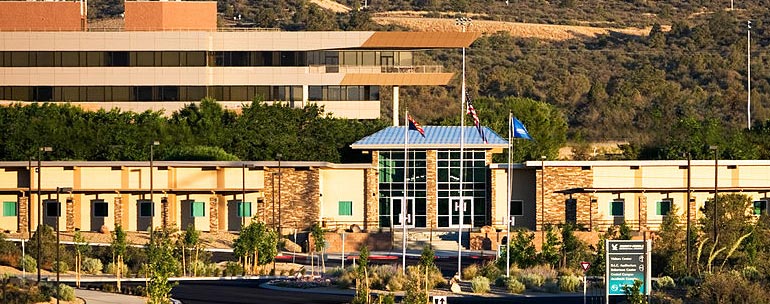
Embry-Riddle Aeronautical University offers an innovative approach to online learning and has catered quality education to students from different parts of the world for over 25 years. Courses have different start dates and sessions that range from nine to twelve weeks.
The university ranked #1 for its fully online bachelor’s programs, according to U.S. News & World Report.
Embry-Riddle Aeronautical University is accredited by the Southern Association of Colleges and Schools Commission on Colleges.

Everglades University has five campuses and an online campus designed to cater to the educational needs of students in Southern Florida.
Their online programs follow a one-class-at-a-time format, a robust approach that allows online learners to concentrate on one subject and master it before moving on to another. Classes are designed to be small with flexible schedules.
Everglades University is accredited by the Southern Association of Colleges and Schools Commission on Colleges.
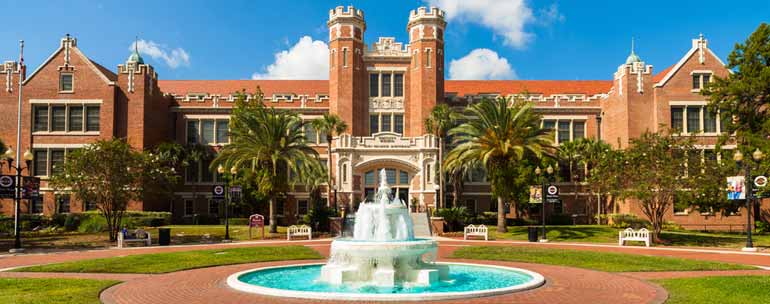
Distance learning at Florida State University is convenient, flexible, and high-quality. Many of their online college courses meet the university-wide graduation and general education requirements.
FSU online campus has all the resources to help students succeed in their academic endeavors. They have virtually everything students need, from distance library services to the career center and counseling center.
Florida State University is accredited by the Southern Association of Colleges and Schools Commission on Colleges.

Grand Canyon University has a wide range of accredited online degree programs. Their programs are based on a values-based curriculum that aims to develop students’ holistic development.
Online students are given access to educational resources, including student services, library, and technical help. Classes are taught by highly trained and qualified faculty committed to supporting students’ success.
Grand Canyon University is accredited by the Higher Learning Commission.
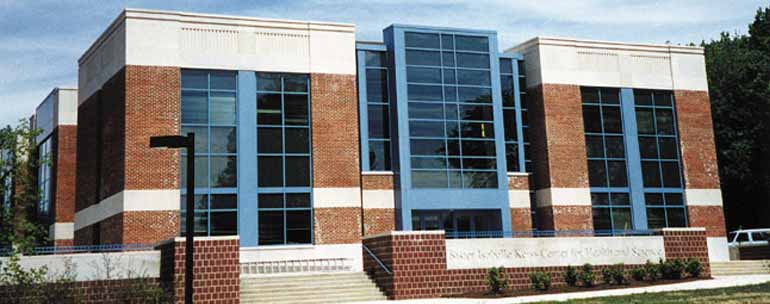
Gwynedd Mercy University is a Catholic university in Pennsylvania. It offers certificate, bachelor’s, master’s, and doctorate programs that are flexible, innovative, and convenient. Course contents mirror on-campus offerings but with added flexibility and accelerated class options.
Classes are small and personalized, ensuring everyone’s individual needs are met. Online offerings include courses in the field of business, nursing, counseling, education, and applied psychology.
Gwynedd Mercy University is accredited by the Middle States Commission on Higher Education.

Illinois Institute of Technology began serving students remotely through televised courses in the late 1970s. Since then, it has evolved with the advancement of technology from satellite delivery to online formats.
There are a variety of online degree programs with the same rigorous instruction and world-class faculty as on-campus courses.
Illinois Institute of Technology is accredited by the Higher Learning Commission.
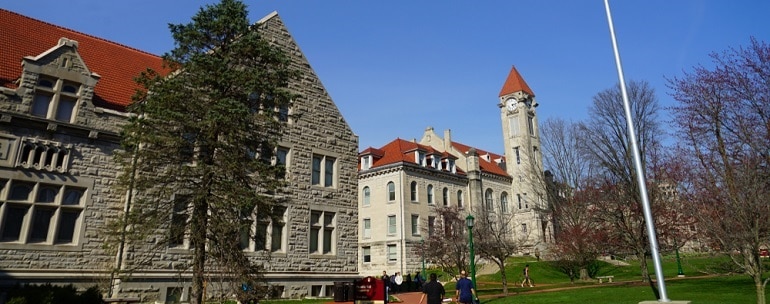
Indiana University’s online classes offer flexible and high-quality programs that the university is known for. There are hundreds of online college courses offered entirely online or with on-campus components.
U.S. News & World Report ranked Indiana University #3 for Online MBA Program, #2 for Online Graduate Business Program, and #21 for Online Bachelor’s Programs.
Indiana University is accredited by the Higher Learning Commission.

Liberty University is an evangelical liberal arts university in Lynchburg, Virginia. The university started to offer online programs in 1985. There are over 400 programs offered to students all over the world.
The curriculum emphasizes the right balance between theory and hands-on training. Students are trained to do their jobs upholding excellence and high ethical standards.
Liberty University is accredited by the Southern Association of Colleges and Schools Commission on Colleges.

Mississippi State University is a land grant research university that was established in 1878. The university’s center for distance learning offers over 50 degree options at the certificate, bachelor’s, master’s, and doctoral levels.
Financial aid is available for those who qualify, and tuition rates are the same for everyone regardless of where they are located.
Mississippi State University is accredited by the Southern Association of Colleges and Schools Commission on Colleges.
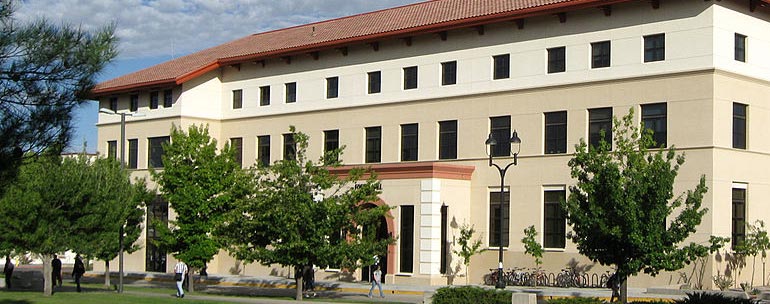
New Mexico State University offers high-quality, affordable, and flexible fully online degree programs with over 500 course options to choose from. The university is in the top public schools list by U.S. News & World Report.
Some of the courses offered are in the fields of business, education, tourism, nursing, engineering, and information technology.
NMSU is accredited by the Higher Learning Commission.

Northeastern University, in Boston, Massachusetts, is a research university with an R1 distinction by the Carnegie Classification of Institutions of Higher Education.
The university’s online students have access to over 80 programs offered fully online or in hybrid formats. Classes are built upon experiential learning to equip students with relevant skills they can use in the real world.
Northeastern University is accredited by the New England Association of Schools and Colleges, Inc.

Northern Arizona University offers two innovative and flexible online learning format options: Traditional Online Learning and Competency-based. In the Traditional Online format, students select a semester-based course schedule and pay their tuition based on credit hours.
On the other hand, the Competency-based Online format allows students to choose their own start date and pay a six-month flat subscription rate.
Northern Arizona University is accredited by the Higher Learning Commission.

Ohio State University is a research university in Columbus, Ohio. The school’s online programs are offered at the undergraduate and graduate degree levels.
OSU is ranked #1 for Best Undergraduate Programs and #4 for Best Online Graduate Nursing Programs, according to U.S. News & World Report. It is also ranked the #1 Best College for Veterans.
Ohio State University is accredited by the Higher Learning Commission.
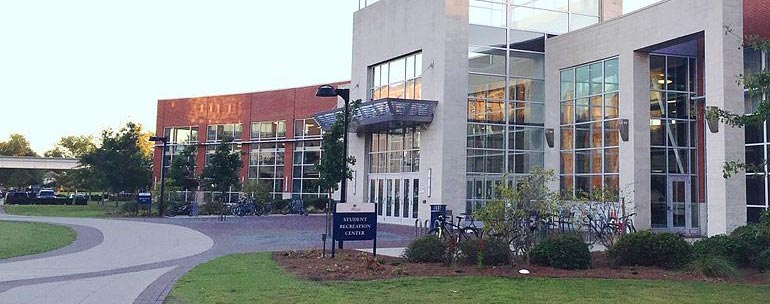
With over 30 years of experience in providing high-quality online education, Old Dominion University takes pride in its 97% satisfaction rate among its students.
The university offers over 100 online programs designed to fit education into working adults’ busy lives. Some of its courses are in the fields of business, computer science, communication, education, social sciences, and engineering.
Old Dominion University is accredited by the Southern Association of Colleges and Schools Commission on Colleges.
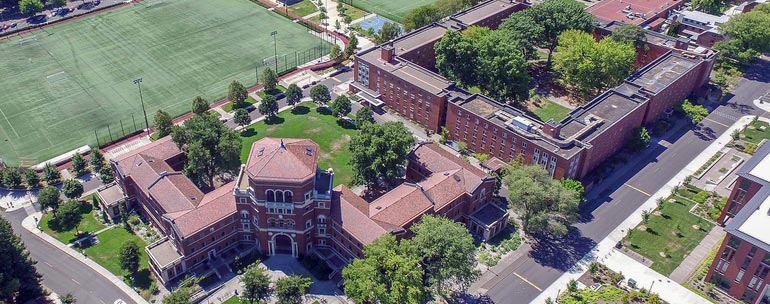
Oregon State University is ranked #6 in the nation for Best Online Bachelor’s Programs as surveyed by U.S. News & World Report.
They have more than 1,300 classes online with over 70 programs and 110 courses to study. Programs are offered at the undergraduate and graduate degree levels with fully online or hybrid options.
Oregon State University is regionally accredited by the Northwest Commission on Colleges and Universities.
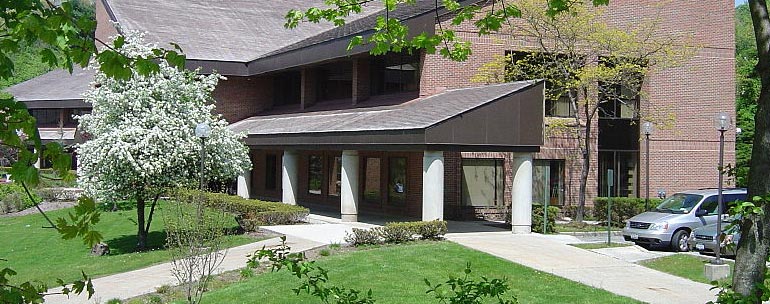
Pace University, established in 1906, has its main campus in New York City. The university is committed to providing exceptional academic experiences to its students even beyond the traditional classrooms through its wide array of online programs.
There are online programs for undergraduate and graduate degree levels, including advanced degrees and professional certifications.
Pace University is accredited by the Middle States Commission on Higher Education.

Penn State World Campus takes pride in offering over 150 degrees and certificates online from bachelor’s to doctoral level. The school is also recognized as one of the Top 10 academic institutions that offer the Best Online Programs according to U.S. News & World Report.
Online classes are conducted through a centralized learning management system that gives students access to syllabi, course content, grades, announcements, and discussions.
Penn State World Campus is accredited by the Middle States Commission on Higher Education.

Regent University, in Virginia, is one of the Top 15 schools that offer the Best Bachelor’s Degree Online Program according to the U.S. News & World Report.
Most of the programs they offer can be accessed fully online or in hybrid formats. With access to extensive research opportunities and resources, online students receive the same quality training and education as traditional students on campus.
Regent University is accredited by the Southern Association of Colleges and Schools.

Regis University is a Catholic Jesuit school located in Denver, Colorado. The university offers programs for adult online learners, so they can pursue their dreams without putting their lives on hold.
These flexible online programs are also available in accelerated and evening courses, with emphasis on real-world skills to ensure that students learn what they need to succeed.
Regis University is accredited by the Higher Learning Commission.
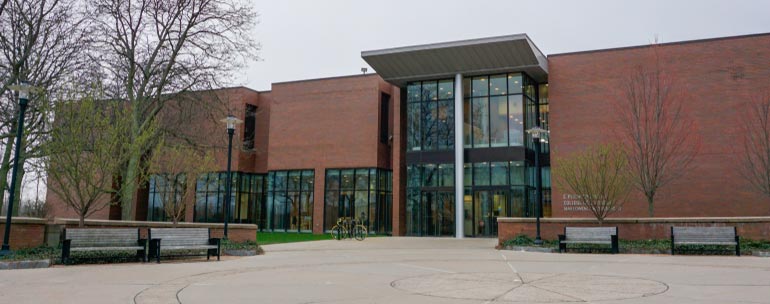
Rochester Institute of Technology has its main campus located in New York. It also has campuses in Dubai, China, Kosovo, and Croatia.
The school offers online programs to allow students from all over the world to expand their opportunities for professional and personal development. RIT Online innovatively creates links with smart and passionate people through social learning tools.
Rochester Institute of Technology is accredited by the Middle States Commission on Higher Education.

St. Joseph’s University is a Jesuit university in Philadelphia. It is committed to preparing men and women for success in their professional lives through rigorous Jesuit education.
The online learning format at SJU is flexible and convenient. Students have access to a user-friendly online platform that allows them to easily immerse themselves within the digital environment.
Saint Joseph’s University is accredited by the Middle States Commission on Higher Education.

Texas Tech University, a research university in Lubbock, Texas, was established in 1923. It is classified by the Carnegie Foundation as one of the universities having the “highest research activity.”
Their online learning programs are flexible, affordable, and taught by outstanding teaching staff. Online courses are available at the bachelor’s, master’s, doctoral, and certificate levels.
Texas Tech University is accredited by the Southern Association of Colleges and Schools Commission on Colleges.
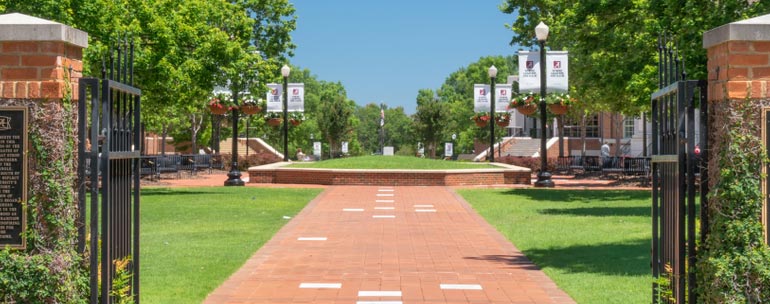
The University of Alabama offers high-quality online education through Bama By Distance. It boasts of its excellent faculty and extensive alumni network, giving it a distinguished reputation not only within the country but around the world.
Innovative and flexible online programs are available at the undergraduate, graduate, and non-degree levels.
The University of Alabama is accredited by the Southern Association of Colleges and Schools Commission on Colleges.

The University of Arizona offers more than 100 online degree programs with flexible schedules to fit into students’ busy lives. Online classes are taught by the same professors teaching on campus. Students can earn both undergraduate and graduate degrees.
U.S. News & World Report has ranked the University of Arizona as the #7 Best Online Bachelor’s Program in the Nation.
The University of Arizona is accredited by the Higher Learning Commission.

The University of Central Florida has been focused on providing innovative education through modern technology for more than 20 years. UCF Online offers nationally-ranked online college courses tailored to the needs of busy adults.
There are over 90 degrees to choose from, all of which are available entirely online. When it comes to cost and value, Forbes ranked UCF as one of the nation’s most affordable colleges.
The University of Central Florida is accredited by the Southern Association of Colleges and Schools Commission on Colleges.

The University of Cincinnati allows students to obtain bachelor’s, master’s, and post-masters degrees completely online. With flexible education, adult online learners are given opportunities to take their careers to a higher level.
With personalized support from faculty, affordable tuition fees, and convenient schedules, the University of Cincinnati garnered a number of distinctions, including #2 University for Innovation, awarded by U.S. News & World Report.
The University of Cincinnati is accredited by the Higher Learning Commission.

The University of Denver offers a high-quality online learning experience with full access to course content, excellent support from instructors, and peer discussions.
Online students are given access to course syllabi, lecture videos, discussions, assignments, and grades. They will also be able to connect and engage in meaningful conversations with teachers and classmates.
Courses are also available in a hybrid format in which students work on a course half on-campus and half online.
The University of Denver is accredited by the Higher Learning Commission.

The University of Florida is a research university in Gainesville, Florida, and is part of the State University System of Florida. It is one of the leading institutions providing top-quality online education. The university offers over 200 online programs for undergraduate, graduate, and certificate levels.
It was given the distinction as one of the universities with the Best Online Programs, according to U.S. News & World Report.
The University of Florida is accredited by the Southern Association of Colleges and Schools.

Online education at the University of Illinois at Chicago provides a rewarding and flexible option for busy working professionals to pursue their academic goals.
The university offers easy-to-use learning software, live technical support, and tutorials to help students navigate through their online environment easily. Courses include business, education, liberal arts and sciences, nursing, public health, applied health sciences, and professional development.
The University of Illinois at Chicago is accredited by the Higher Learning Commission.

The University of Louisiana – Monroe takes pride in over 80 years of student success, which now extends to its online classrooms. The university offers 35 degree programs that are available entirely online.
With increased national recognition for its online programs by U.S. News & World Report, earning a degree at the University of Louisiana speaks of quality education with the added benefits of flexibility, convenience, and affordability.
The University of Louisiana at Monroe is accredited by the Southern Association of Colleges and Schools Commission on Colleges.

The University of Massachusetts Global’s online campus offers a flexible format of learning for non-traditional students. It has the goal to support students seamlessly so that they can focus on their academics and fulfill all their requirements for degree completion.
They offer courses leading to undergraduate and graduate degrees, and as well as certificates across five schools.
The University of Massachusetts Global is accredited by the WSCUC Senior College and University Commission.

The University of Minnesota – Crookston has 20 years of experience in providing innovative and quality online education. The university takes pride in its personalized online classes, high-quality educational services, and highly-motivated faculty. Students can earn both undergraduate and graduate degrees.
Some of the programs offered online include Accounting, Finance, Health Management, Information Technology, Marketing, International Business, and Applied Health.
The University of Minnesota Crookston is accredited by the Higher Learning Commission of the North Central Association.

The University of Missouri has a wide range of online degrees and certificate options. There are over 125 programs and more than 1,000 courses available online with the same quality and rigor as the courses taught on campus.
For three consecutive years, the University of Missouri has garnered the Best Online Programs recognition from U.S. News & World Report.
The University of Missouri is accredited by the Higher Learning Commission.
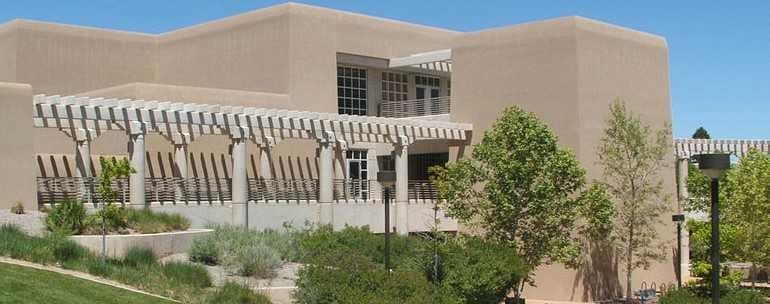
The University of New Mexico offers top-quality online degrees and courses throughout the country and around the world by U.S. News & World Report. A number of degree programs, from the bachelor to doctorate level, are available in a flexible online format.
Some of these programs include Business Administration, Computer Engineering, Dental Hygiene, Liberal Arts, Educational Leadership, Nursing, and Psychology.
The University of New Mexico is accredited by the Higher Learning Commission.

The University of Oklahoma continues to provide access to world-class, transformational degrees, certificates, and programs to learners from diverse backgrounds. Since 1961, the university’s extended campus has been delivering quality education to students wherever they are located.
The university takes pride in being in the Top 10 Best Online Colleges, according to U.S. News & World Report.
The University of Oklahoma is accredited by the Higher Learning Commission.

As one of the world’s leading research universities, the University of Southern California provides extensive opportunities for collaborative and interdisciplinary study in its curricular offerings.
The university is ranked in the Top 18 in The Wall Street Journal and Times Higher Education. It offers online programs in Business and Accounting, Communication, Dentistry, Education and Teaching, Engineering, Health and Medicine, Law, Psychology, and many more.
The University of Southern California is accredited by the Western Association of Schools and Colleges.

Washington State University Global Campus offers convenient, flexible, and high-quality online education to undergraduate and graduate degree seekers.
Courses are taught by prestigious faculty members, who are not only experts in their fields but also received the nation’s highest honor for scientific research. In 2016, the university received the Carnegie Classification, a distinction given to institutions with the “highest research activity.”
Washington State University is accredited by the Northwest Commission on Colleges and Universities.
Is a College Degree Worth It?
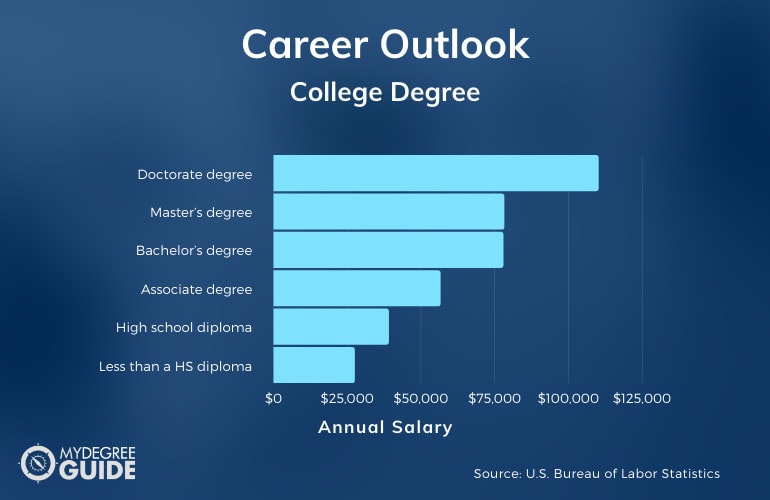
Yes, a college degree is definitely worth it for many students. According to the U.S. Bureau of Labor Statistics, the annual average salary climbs higher and higher with every degree level:
- Less than a high school diploma: $27,510
- High school diploma: $39,070
- Associate’s degree: $56,590
- Bachelor’s degree: $77,920
- Master’s degree: $78,210
- Doctorate degree: $110,200
The average unemployment rate drops too. While high school dropouts have an 11.7% unemployment rate, people with a bachelor’s degree have a 5.5% rate, and people with a doctorate have a 2.5% rate.
It may not be easy to get a college degree, but the numbers don’t lie.
If you want a high-quality, high-paying career, getting an education and entering the workforce as a skilled and qualified professional can help.

